Buy Facebook Accounts
In the rapidly evolving world of digital marketing, businesses continually seek innovative strategies to enhance their online presence and engagement. One such unconventional method that has gained attention is the practice of purchasing old Facebook accounts. This approach may seem like a quick fix to gain a significant foothold on one of the world’s most influential social media platforms, but it’s surrounded by a mix of controversy, practical benefits, and significant risks.
Old Facebook accounts are valued for their established histories and perceived authenticity, which can be a boon for businesses aiming to avoid the slow and rigorous process of building a social media presence from the ground up. These accounts often come with existing followers, which can provide an immediate audience to market products or services.
Moreover, the age of these accounts can confer a level of credibility and trust that new accounts simply cannot match initially, making them a seemingly attractive option for businesses looking to fast-track their digital strategy.
However, the practice of buying old Facebook accounts is not without its complications. It raises several ethical questions and legal concerns, particularly with respect to adherence to Facebook’s terms of service, which explicitly prohibits the sale and purchase of user accounts. Violations of these terms can lead to account suspensions or bans, thus potentially wasting investment and damaging the business’s reputation.
Furthermore, the effectiveness of using an old account depends significantly on the relevance of its followers to the new business’s market and the authenticity of the interactions it previously engaged in. There’s also the risk of inheriting any negative history associated with the account, such as penalties by Facebook or a tarnished reputation among its user base.
Given these factors, businesses looking to purchase Facebook accounts must weigh their desire for rapid growth against the potential for long-term setbacks. Understanding the risks and benefits thoroughly is crucial for any business considering this path as part of its social media strategy.
Difference between new Facebook account and old Facebook account
The primary difference between new and old Facebook accounts lies in their age and the subsequent impact this has on various aspects of their use and functionality on the platform. Here’s a detailed look at some of the key differences:
Trust and Credibility
- Old Account: An old Facebook account often carries more credibility among users because it has been active for a longer time. This can influence perceptions positively, making it appear more trustworthy. An established history with genuine interactions and content also supports this trust.
- New Account: New accounts may struggle with trust issues initially as they lack historical data and the follower base that contributes to perceived authenticity.
Followers and Network
- Old Account: Typically, an old account will have accumulated followers over time, providing a ready audience for posts and interactions. This can be particularly advantageous for businesses looking to quickly establish a presence.
- New Account: A new account starts from scratch, meaning it has to build its follower base and network over time, which requires consistent effort and engagement strategies.
Features and Functionality
- Old Account: Facebook sometimes rolls out new features and testing phases to established accounts first. Older accounts might also have access to features that are restricted to newer ones until certain criteria are met (like page verification or a minimum number of followers).
- New Account: New accounts may not immediately have access to all features. Restrictions can apply until the account has proven its legitimacy and value to the community.
Risk of Penalties
- Old Account: While an older account can be advantageous, it also runs the risk of having a history of penalties or violations that new managers might not be aware of immediately. These can affect the account’s reach and visibility.
- New Account: New accounts start with a clean slate regarding Facebook’s policies and penalties, which means there are no hidden past activities that might impact its performance.
Algorithmic Familiarity
- Old Account: Facebook’s algorithms are more familiar with older accounts, understanding their typical engagement patterns and content types. This can benefit the account by having a more predictable performance in how content is served to users.
- New Account: It can take time for Facebook’s algorithms to learn and optimally interact with a new account. Initial engagement might be low as the algorithm determines the best audience for the account’s content.
Marketability
- Old Account: An older account with a good reputation and consistent engagement history can be more marketable, attracting partnerships, sponsorships, and ad revenue opportunities.
- New Account: Building marketability takes time for new accounts as they must prove their worth through growing engagement metrics and demonstrating effective reach and influence.
Why Purchasing an Facebook Account Could Be Beneficial for Your Business
Purchasing an old Facebook account might seem like an unconventional approach to bolstering your business’s digital presence, but it can offer several potential benefits. This strategy, while not without risks, can be particularly appealing for businesses looking to quickly establish a foothold on one of the world’s most popular social media platforms. Here’s why buying an old Facebook account could be advantageous for your business:
 Immediate Access to a Broad Audience
Immediate Access to a Broad Audience
An old Facebook account typically comes with an existing base of followers. This immediate access to a broad audience can be a significant advantage for new or rebranding businesses that need to communicate with a large number of users right away, skipping the slow and steady process of building followers from scratch.
Established Credibility
Old accounts have a history and potentially a track record of interactions and engagements, which can lend an air of credibility and authenticity that new accounts lack. Users are often more willing to engage with and follow an account that has been around for a while, as it appears more trustworthy.
Enhanced Organic Reach
Facebook’s algorithms often favor accounts with established engagement patterns. An old account with consistent historical engagement might benefit from better organic reach compared to a new account. This means your posts could potentially appear in more news feeds without the need for paid promotion.
Quicker Verification Process
Old accounts might find it easier to get verified if they haven’t been already. Verification adds a layer of authenticity to your business, making it more appealing to users and potential business partners.
Advanced Features Access
Sometimes, Facebook offers new features and tools to more established accounts first. Owning an old account could provide early access to innovative marketing tools and features that can be used to advance your business before they become available to newer accounts.
Time-Saving
Building a new Facebook presence takes time—not just to grow follower numbers, but also to establish a pattern of interaction, a recognizable style, and a tone of voice. An old account might already have these elements in place, allowing you to focus on adjusting the strategy to fit your business rather than starting from the ground up.
Potential for Better Insights
An older account will have a wealth of historical data that can be invaluable for analytics and strategy planning. Understanding past engagement trends can help shape more effective future campaigns.
Reasons for Buying an Old Facebook Account
Purchasing an old Facebook account can offer several advantages for businesses and individuals aiming to enhance their social media presence effectively and swiftly. An old account typically comes with a built-in audience, which means immediate reach to numerous followers. This is particularly beneficial for new businesses or rebranding efforts that require rapid visibility and engagement without the initial slow buildup phase.
These accounts are often seen as more credible and trustworthy. The longevity of an account can significantly impact user perceptions, potentially increasing the likelihood of engagement because users tend to trust established profiles over new ones. This established trust can be a critical factor in social media where authenticity plays a central role in user interactions.
Moreover, established accounts usually demonstrate higher engagement levels, such as more likes, comments, and shares. This increased activity is favored by Facebook’s algorithms, enhancing the visibility of posts and potentially leading to greater organic reach.
Another significant advantage is the avoidance of the “warm-up” phase that new accounts undergo. This phase involves gradually increasing activity to avoid triggering Facebook’s automated security measures, which can limit growth. An older account can typically engage in more robust activity right from the start.
Additionally, older Facebook accounts may have access to advanced features before newer accounts. Facebook often tests new tools and features with established accounts, providing them a competitive edge in utilizing the platform’s latest functionalities.
These accounts also come with historical data, offering valuable insights into past engagement trends and audience behaviors. Such insights can guide more informed marketing decisions and strategy adjustments.
From a marketability perspective, an older account with a solid track record can attract more lucrative partnerships and advertising opportunities. Brands and marketers often look for established platforms with a dedicated following to maximize their reach and impact.
While there are clear benefits to buying an old Facebook account, it is crucial to consider the ethical implications and potential risks involved, including the violation of Facebook’s terms of service. Understanding these factors will help in making a well-informed decision that aligns with both business goals and platform guidelines.
Benefits of Facebook account to grow your business
An old Facebook account can be a valuable asset for businesses aiming to grow their online presence more effectively. Such accounts come with an established audience base, which means immediate access to a group of users who may engage with your content right from the start. This immediate reach can accelerate the growth and visibility of a new business or a rebranding effort.
The credibility associated with an older account is another significant benefit. Users tend to view long-standing accounts as more trustworthy, which can enhance the perceived reliability of your business. This established trust is crucial for fostering lasting relationships with customers and enhancing brand loyalty.
High engagement levels are also a hallmark of older Facebook accounts, thanks to their history of interactions and possibly a larger follower count. High engagement increases the likelihood of your content appearing in user feeds, as Facebook’s algorithms prioritize active interactions. This enhanced visibility can lead to increased organic reach without the need for substantial advertising spend.
Having access to advanced features sooner is another advantage of using an older account. Facebook often grants new functionalities to established accounts first, providing them with innovative tools to engage audiences and manage content more effectively.
Moreover, an old account provides rich insights into audience behavior and engagement patterns, thanks to the accumulation of data over time. These insights are invaluable for crafting targeted marketing strategies that resonate with the audience, improving the efficiency of your social media efforts.
Additionally, bypassing the initial “warm-up” period required for new accounts can be a significant time-saver. New accounts typically undergo a phase where they must prove their legitimacy to Facebook’s algorithms, limiting their initial reach. An established account can post more freely, allowing for a more aggressive and immediate content strategy.
Lastly, an old account with a solid engagement record and reputable history is attractive to potential partners and advertisers. It opens up opportunities for sponsorships and collaborations, which are essential for business expansion and increased revenue.
While these advantages are compelling, it’s crucial to be aware of the potential risks and legal implications of acquiring an old Facebook account, including the possibility of violating Facebook’s terms of service. Businesses should consider these factors carefully to ensure their growth strategies align with ethical practices and platform guidelines.
Importance of old facebook account for fast business growth
An old Facebook account holds significant value for businesses aiming to achieve rapid growth in the digital landscape. Such accounts come pre-equipped with a built-in audience, which is a substantial advantage. This means that from the moment a business takes over an old account, it has immediate access to a group of users who are already engaged, eliminating the need for the time-consuming process of building an audience from scratch.
The established presence of an old account also enhances the business’s credibility and trustworthiness. Users tend to trust older accounts more than new ones because they have been active for a longer time, suggesting stability and a reliable history of interactions. This level of trust is crucial for attracting new customers and encouraging repeat business.
Moreover, these accounts often enjoy higher engagement rates due to their established histories. Facebook’s algorithms favor profiles and pages with consistent user interactions, so an older account with a track record of active engagement benefits from increased visibility. This can lead to organic growth, as higher engagement rates improve the likelihood of content appearing in more users’ feeds.
Having access to Facebook’s full features from day one is another critical advantage. Older accounts are typically granted access to new tools and features before newer accounts. These features, which might include advanced analytics or enhanced advertising capabilities, can provide a competitive edge, allowing for more sophisticated marketing strategies.
Additionally, the time efficiency gained by acquiring an old account cannot be understated. Businesses can bypass the initial phases of establishing trust and building a follower base, allowing them to focus immediately on strategic actions like market expansion, product promotions, and customer engagement.
Lastly, the marketability of an old account with a solid engagement history and a large follower base makes it an attractive partner for other businesses and advertisers. This appeal can lead to lucrative partnerships and collaborations, further accelerating business growth and expanding market reach.
While the advantages are clear, it’s important for businesses to proceed with caution and ensure that any acquisition of an old Facebook account is in compliance with Facebook’s policies to avoid any potential legal or ethical issues. This strategic approach can enable businesses to harness the full potential of social media for rapid and sustainable growth.
Considerations Before Buying an Old Facebook Account
Before purchasing an old Facebook account, several critical considerations must be taken into account to ensure that the decision aligns with both business objectives and ethical standards. Understanding the risks and benefits is essential to making an informed choice.
Compliance with Facebook’s Terms of Service: It’s paramount to recognize that buying or selling Facebook accounts violates Facebook’s terms of service. Engaging in such transactions can lead to the account being suspended or permanently banned. Businesses should consider the potential repercussions of acquiring an account in this manner, as it could lead to a loss of investment and damage to the business’s reputation.
Verification of Account Authenticity: Prospective buyers should thoroughly investigate the history of the account to ensure its legitimacy. This includes checking for genuine engagement, the quality and relevance of the followers, and the overall activity history. Accounts padded with fake followers or those involved in spammy activities can harm a business’s reputation and provide little to no value in terms of engagement.
Legal and Ethical Implications: Ethical considerations are crucial when acquiring an old Facebook account. The ethical stance of engaging in such a practice should be evaluated, as it could impact the brand’s image and customer trust. Legally, it’s important to ensure that all aspects of the purchase are transparent and do not infringe on any laws or regulations.
Potential for Inherited Problems: An old account may come with historical baggage, such as previous policy violations or a tarnished reputation among its follower base. These issues can be challenging to rectify and might affect future engagements and the effectiveness of the account in promoting the business.
Transitioning the Account: Changing the original tone and purpose of the account to match the new business’s objectives can be challenging. There is a risk that existing followers may not respond well to new management or a shift in content, which could lead to a loss of followers and reduced engagement.
Security Risks: Security is another significant concern. The account might be at risk of being reclaimed by the original owner or targeted by hackers, especially if proper security measures are not in place. Ensuring the account’s security settings are updated and securing ownership rights are crucial steps in the purchasing process.
Integration with Existing Marketing Strategies: The old account should seamlessly integrate into the existing marketing strategies of the business. There must be a clear plan on how to use this account to complement and enhance current marketing efforts rather than working against them or duplicating them.
Cost vs. Benefit Analysis: Finally, weigh the costs against the anticipated benefits. While an old account may offer quick access to a large number of followers and potentially higher engagement rates, the financial and reputational costs of acquiring such an account under questionable circumstances might outweigh these benefits.
Careful consideration of these factors will help in making a decision that is both strategically sound and aligned with the long-term goals and ethical standards of the business.
Considerations Before Buying an Facebook Account
When contemplating the purchase of an old Facebook account, there are several crucial considerations to keep in mind to ensure that the decision aligns with legal standards, ethical practices, and the long-term goals of your business.
Adherence to Facebook’s Terms of Service: First and foremost, it’s important to understand that buying or selling Facebook accounts violates Facebook’s terms of service. Engaging in this activity can lead to the account being permanently banned or suspended. This can not only negate any potential benefits but also harm your business’s reputation.
Account Authenticity: Verifying the authenticity of the account is essential. It’s important to ensure that the account’s followers are genuine and that its engagement metrics are not inflated by bots or fake interactions. An account with a fabricated follower base will not provide the expected value and can lead to issues with Facebook’s authenticity guidelines.
Risk of Previous Violations: An old account may have a history of violations or issues that could impact its future use. Any penalties previously imposed on the account, such as reduced reach or temporary restrictions, could carry over and affect your marketing efforts.
Legal and Ethical Implications: From a legal perspective, owning and operating an account obtained through purchase may expose your business to liabilities. Ethically, the practice of buying an account can be seen as deceptive by customers and business partners, potentially damaging trust and credibility.
Integration with Existing Marketing Strategy: Consider how well the existing follower base and the type of content previously posted on the account align with your current marketing strategy. Mismatched content and audience expectations can lead to poor engagement and follower drop-off.
Security Concerns: Ensure the account is free from security risks such as previous breaches or compromised information. It’s crucial to have all necessary security measures in place, such as updated passwords and secure access protocols, to protect the account from unauthorized access.
Cost vs. Benefit Analysis: Evaluate whether the cost of purchasing an old account will yield sufficient benefits in terms of saved time, increased reach, and other factors. Sometimes, investing in organic growth or paid advertising might offer a better return on investment without the associated risks.
Potential for Future Growth: Assess whether the account has room for growth and expansion under your management. An account that is already highly specialized or has a narrowly defined audience might not offer much flexibility for pivoting or expanding to new markets.
Considering these factors thoroughly will help ensure that your decision to purchase an old Facebook account is well-informed and aligns with both your immediate needs and long-term business objectives. It’s often beneficial to explore alternative ways to build a Facebook presence that comply with the platform’s guidelines and foster genuine customer relationships.
In conclusion, while the allure of purchasing an old Facebook account might seem tempting due to the immediate access to an established audience and enhanced credibility, it is crucial to approach this strategy with a high degree of caution and thorough consideration. The legal, ethical, and operational risks associated with this practice can often outweigh the potential benefits.
Firstly, the violation of Facebook’s terms of service is a significant deterrent, as it not only poses a risk of account suspension or ban but also invites potential legal challenges that could harm your business’s reputation and operations. The ethical implications of deceiving customers with a bought presence can further erode trust and integrity, which are cornerstone values for any successful business.
Moreover, the practical aspects of acquiring an old account—such as the authenticity of its followers, the relevance of its engagement, and the potential for hidden violations or security issues—require meticulous verification and can complicate the integration of the account into your existing marketing strategy. The initial advantages might seem promising, but the ongoing challenges and adjustments needed to align the account with your business objectives can be considerable.
Additionally, the financial aspect of purchasing an old account should not be overlooked. It involves not only the initial cost but also the potential ongoing investment required to rectify issues, secure the account, and adapt it to suit new purposes. Often, building a new account organically or enhancing an existing one through targeted advertising and genuine engagement strategies might offer a more sustainable and cost-effective approach.
Therefore, businesses should carefully evaluate their ability to achieve growth through more traditional and compliant methods before considering the purchase of an old Facebook account. Investing in organic growth, leveraging paid advertising options, and engaging in authentic interactions with customers are proven strategies that not only abide by social media policies but also build lasting loyalty and trust with audiences.
Ultimately, the decision to purchase an old Facebook account should not be taken lightly. A comprehensive assessment of all risks, costs, and potential benefits should guide any actions. For many businesses, focusing on ethical practices and sustainable growth will prove to be the most beneficial strategy in the long run, ensuring compliance, brand integrity, and genuine customer relationships.

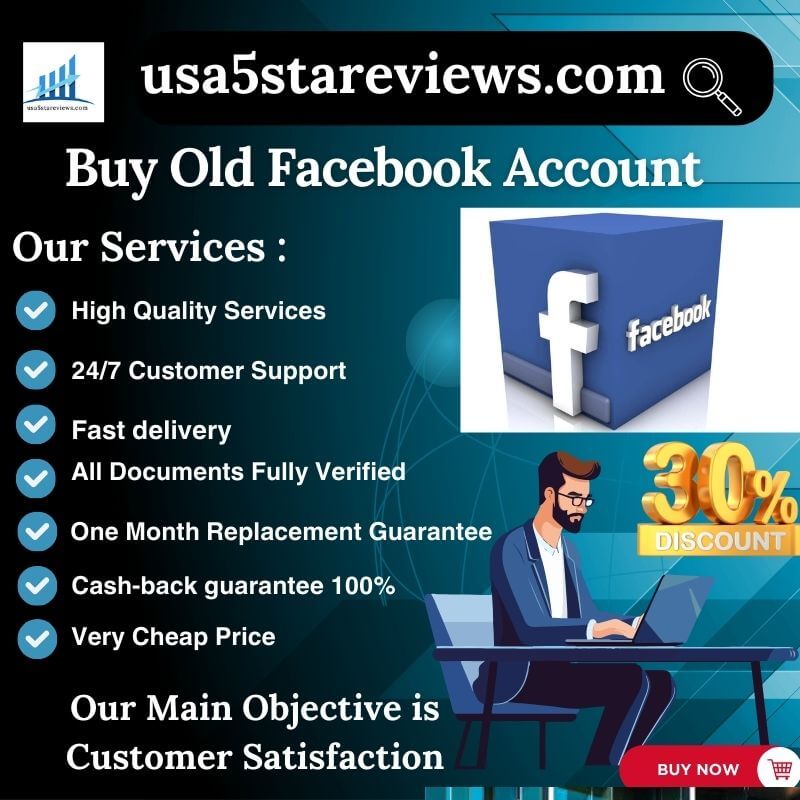
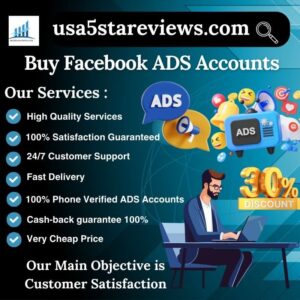
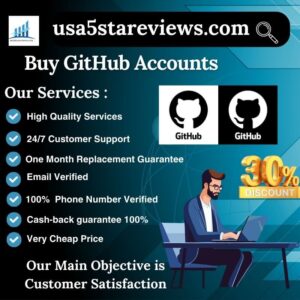
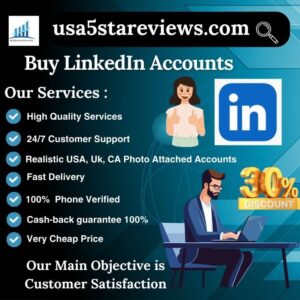
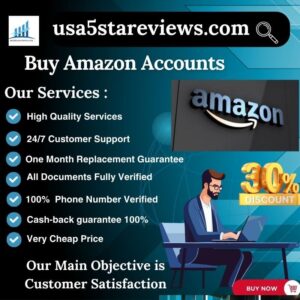
Reviews
There are no reviews yet.